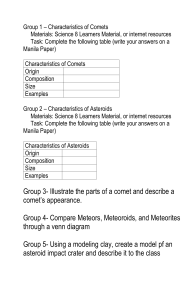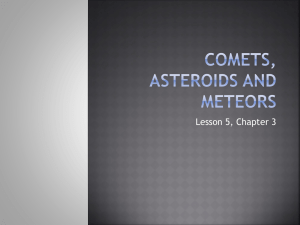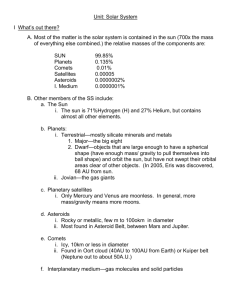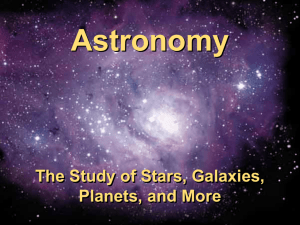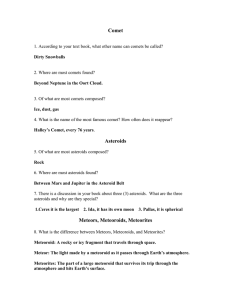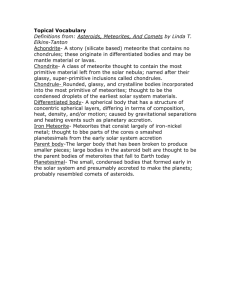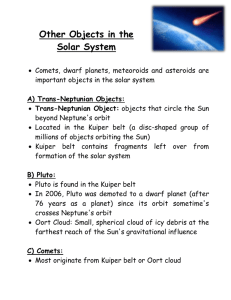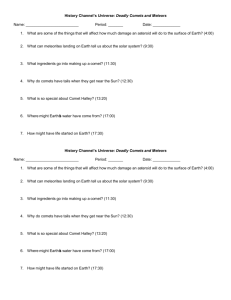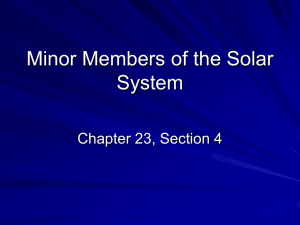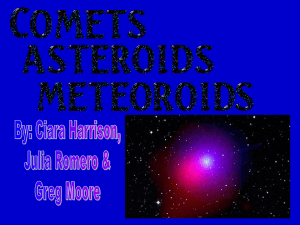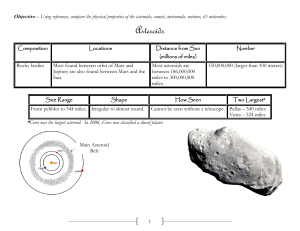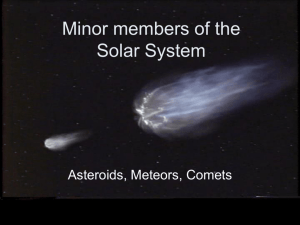PowerPoint: Solar System Bodies
advertisement
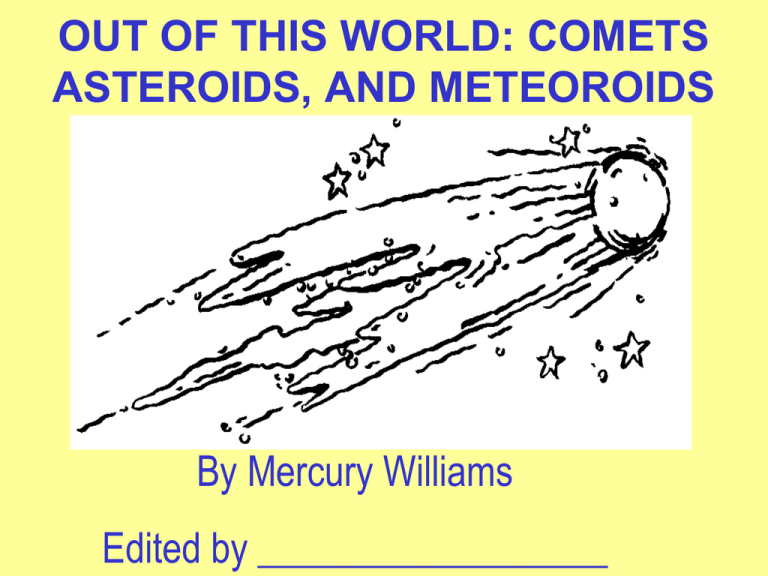
OUT OF THIS WORLD: COMETS ASTEROIDS, AND METEOROIDS By Mercury Williams Edited by __________________ In the Milky Way galaxy lies our solar system, a region composed of the sun, eight planets, and moons. Most people disregard the smaller celestial bodies called asteroids, comets, and meteoroids that fill our solar system. COMETS Comets, commonly known as “Dirty Snowballs” are composed mainly of ice, dust, rock, and frozen gases that do not have any definite shape. Comets appear to be fireballs of light zooming through the sky. Comets, however, do not produce their own light. Gas and dust particles reflect the sun’s light. In 1986, scientists all over the world awaited the arrival of Halley's comet. This would be the only opportunity in history to gather information about such a comet, because its motion is extremely unpredictable. ASTEROIDS Asteroids are fragments of rock with an irregular shape that orbit the sun. They are too numerous to be considered planets. Most asteroids can be found orbiting the sun between Mars and Jupiter. This region is known as the asteroid belt. Asteroids may be made of rocky material, and can contain metals and other elements. Most are small, but some are larger than 300 km across. The largest are Ceres, Vesta, Hygiea, and Pallas. METEOROIDS Meteoroids, bits of rock and metal, are formed from asteroids and comets. These small celestial objects move throughout the solar system. Meteors are also know as shooting stars. When a meteoroid enters the atmosphere, friction with the air creates heat, and produces a streak of light. This is called a meteor. Meteorites are meteoroids that pass through the atmosphere and hit the Earth’s surface before they burn up. Meteorites are classified based on their composition. Students, I’m having a hard time concluding this PowerPoint. Please write a summary. Thanks- Mercury
